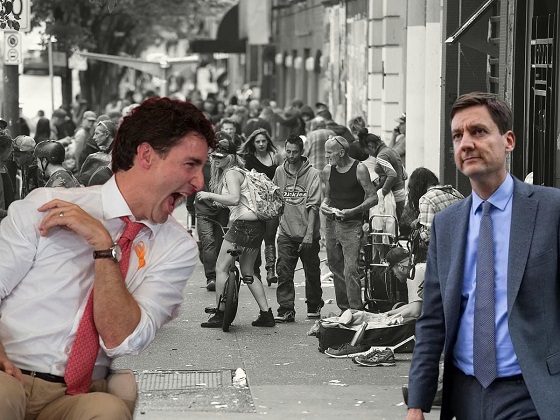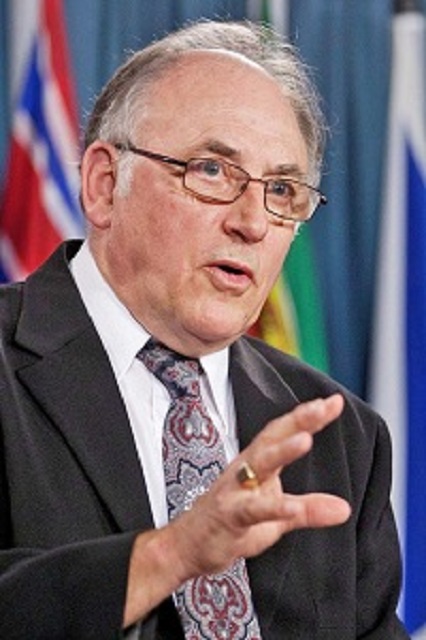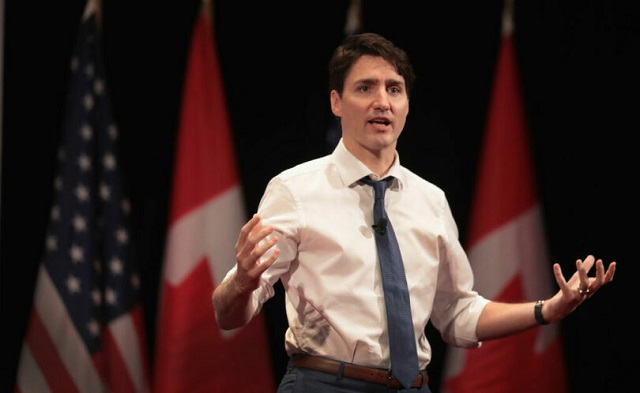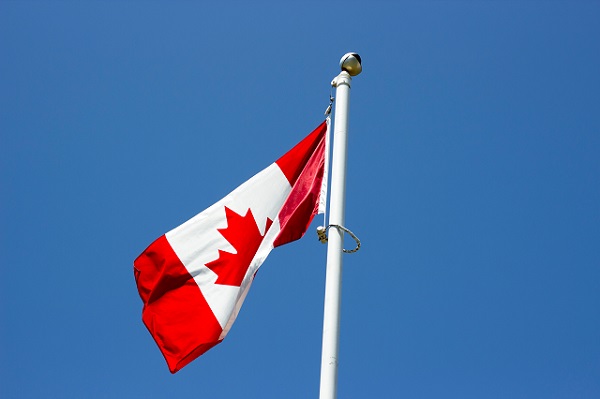espionage
The foreign interference inquiry could backfire on our national security
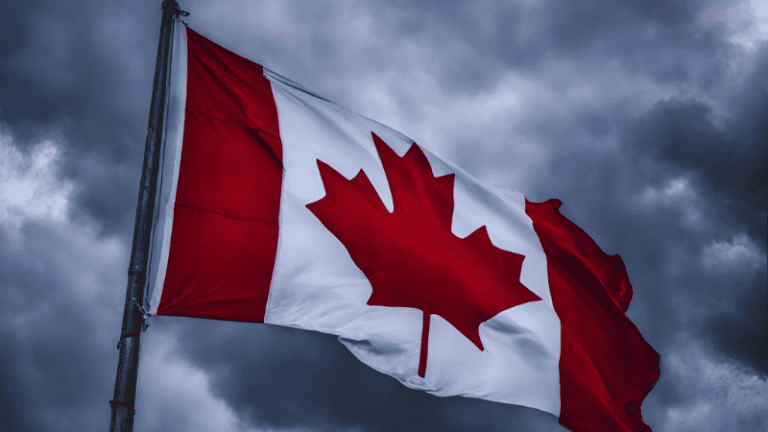
From the MacDonald Laurier Institute
By Katherine Leung and Ivy Li
Two politicians alleged by security experts to have close connections with the Chinese Consulates have been granted full standing in the inquiry by Commissioner Marie-Josée Hogue.
Canada’s public inquiry into foreign interference finally began on Monday, but unfortunately there has already been significant controversy in the months leading up to its launch. Chief among these concerns is the inquiry’s questionable ability to safeguard sensitive national security information from being used by individuals with ties to the People’s Republic of China (PRC).
Two politicians alleged by security experts to have close connections with the Chinese Consulates have been granted full standing in the inquiry by Commissioner Marie-Josée Hogue. This decision shocked many, especially communities who have been subjected to the Chinese Communist Party’s transnational repression.
Given the inclusion of these two suspect individuals, human rights activists have expressed concern for their safety if they are called to testify before the inquiry. A human rights coalition, which was also granted full standing, appealed the inclusion of the two individuals – they merely asked Hogue to downgrade the politicians’ standing status in order to protect vulnerable witnesses – but the appeal was denied.
A person who has full standing in the inquiry has the right to cross-examine witnesses and to access documentary evidence not admitted as exhibits, meaning they read and see exactly what the judge reads and sees. Knowing anything and everything the Commission has learned gives unimpeded access to sensitive and confidential information related to Canadian national security, information that is not available to parties with lesser standing.
Information gathered by the Commission will almost certainly reveal how Canadian activists and security experts monitor foreign infiltration and influence. It could expose the methodology used, contacts and information sources, and the strategic approach and rationale of each expert or analyst. Together, these bits and pieces of information will provide a detailed strategic map, exposing how Canadian authorities, non-governmental organizations, grassroots groups, and individuals have attempted to defend Canada’s sovereignty and democratic institutions. This is powerful knowledge; it is not the type of information that should be available to the perpetrators of foreign interference.
By granting standing to individuals with alleged ties to the Chinese embassy, we are potentially offering incredible insight to our adversaries, enabling them to design and execute more effective interference operations and targeted counter actions against the Canadians standing up for our national sovereignty.
Among those granted full standing are Han Dong (the Member of Parliament for Don Valley North) and Michael Chan. Dong was reported by Global News to be at the centre of China’s interference network in Canada as a “willing affiliate”. He subsequently left the Liberal caucus as he works to clear his name, and he continues to sit as an independent MP. Michael Chan, now deputy mayor of Markham, was a minister in the Ontario Liberal government from 2007 to 2018. The Globe and Mail reported that he was identified by CSIS as “too close to the Chinese consulate.” Both Dong and Chan deny these allegations.
Hogue cites the two men’s reputational interest in the Public Inquiry as a direct and substantial interest in the Commission’s work. While that is true, the question remains whether it is in Canada’s interests and appropriate to allow individuals alleged to have close ties with the PRC full access to the Commission’s evidence and records.
The Commission is not mandated to determine if individual suspects are guilty or not. The two politicians could tell their side of the story without full access to non-exhibits and without the power of cross-examination.
Canadians have demanded a public inquiry to protect Canadian sovereignty and democratic integrity. Sensitive information pertaining to Canada’s national security should be handled with the utmost caution. Han Dong and Michael Chan should not be treated as though allegations against them have been proven beyond a doubt – they have not – but the clear potential of inappropriate links to the PRC should disqualify them from accessing information that would be detrimental to our national security if it were to fall into the wrong hands.
The public inquiry meant to protect Canada’s institutions from foreign interference may end up undermining both the safety of individual Canadians and the efficacy of our broader national security apparatus.
Katherine Leung is the policy advisor for Hong Kong Watch Canada. She previously worked as a parliamentary assistant to a sitting MP.
Ivy Li is a spokesperson for Canadian Friends of Hong Kong, and a contributor to The Mosaic Effect – How the Chinese Communist Party started a hybrid war in America’s backyard.
espionage
Canada’s intelligence chief says he personally warned Trudeau about China’s election meddling
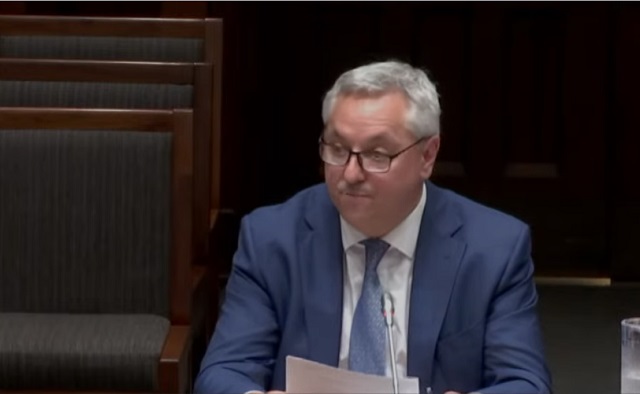
David Vigneault
From LifeSiteNews
Canadian Security Intelligence Service director David Vigneault authenticated memos used during private meetings with the prime minister as well as his staff concerning Chinese Communist deception.
The head of Canada’s intelligence agency testified under oath that he gave Justin Trudeau multiple warnings that agents of the Communist Chinese Party (CCP) were going after Conservative MPs yet the prime minister has denied he ever got these warnings.
In what appears to be a contradiction of Trudeau’s claim that he was not briefed directly about CCP meddling in Canada’s electoral process, Canadian Security Intelligence Service (CSIS) director David Vigneault said late last week at the Foreign Interference Commission that he indeed had “communicated” the issues.
He then authenticated memos used during private meetings with Trudeau as well as his staff concerning CCP deception, which was also noted in a “top secret” memo titled Briefing to the Prime Minister’s Office on Foreign Interference Threats to Canada’s Democratic Institutions, dated February 21, 2023.
The six-page memo went into full detail as to the extent of CCP subterfuge that targeted Canada’s Conservative Party in the 2019 and 2021 federal elections.
The memo read that CCP agents “were almost certainly motivated by a perception the Conservative Party of Canada was promoting a platform that was perceived to be anti-China,” also stating that 2021 election anomalies were “aimed at discouraging Canadians, particularly of Chinese heritage, from supporting the Conservative Party, leader Erin O’Toole and particularly Steveston-Richmond East candidate Kenny Chiu.”
“We know the People’s Republic of China clandestinely and deceptively interfered in both the 2019 and 2021 general elections,” the memo reads.
Vigneault confirmed he used similar language when speaking with Trudeau and political aides.
At the Commission inquiry, Gib van Ert, counsel for Conservative MP Michael Chong, asked Vigneault if “this knowledge something you or the Canadian Security Intelligence Service as a body communicated to the Prime Minister?”
“It is indeed something I communicated,” Vigneault replied.
Thomas Jarmyn, counsel for Erin O’Toole, then asked if “Those words were chosen with intention?”
“Yes, these words are carefully selected,” Vigneault replied.
Earlier this week, LifeSiteNews reported that details from the “top secret” memo have shown that Trudeau’s office was giving explicit warnings by Canadian intelligence that agents of the CCP were an “existential threat to Canadian democracy.”
The Foreign Interference Commission was convened to “examine and assess the interference by China, Russia, and other foreign states or non-state actors, including any potential impacts, to confirm the integrity of, and any impacts on, the 43rd and 44th general elections (2019 and 2021 elections) at the national and electoral district levels.”
The Commission is being headed by Justice Marie-Josée Hogue, who had earlier said that she and her lawyers will remain “impartial” and will not be influenced by politics and began January 29.
In January, Hogue said that she would “uncover the truth whatever it may be.”
Spy head: Trudeau was ‘briefed’
Last week, the commission learned about another “secret” memo from October 26, 2022, about “clandestinely supported candidates” states that “People’s Republic of China officials could be emboldened in their electoral interference efforts by the 2021 defeat of former Richmond MP Kenny Chiu.”
During testimony at the commission, Vigneault confirmed that he mentioned the matter with Trudeau, saying, “This is one of the cases I briefed the Prime Minister on that day.”
Shantona Chaudhury, counsel for the commission, asked him if he was able to recall “whether that is something you conveyed to the Prime Minister?”
“I don’t remember if I used these exact words but talking about that specific case, I put that case in context in relation to other People’s Republic of China activities,” Vigneault replied.
Nando de Luca, counsel for the Conservative Party, then asked Vigneault if the information was specifically communicated to Trudeau.
“I can tell you some of that information was absolutely used to brief on a very specific topic,” Vigneault replied.
Vigneault then noted that all the top-secret memos, which were composed for his meetings with Trudeau’s office, contained many facts as well as similar language he had spoken of many times.
“I have verbalized some of these issues in the past,” Vigneault told the commission.
Despite the warnings given to Trudeau’s office, not once were opposition MPs warned that they were a target of CCP agents.
In May 2023, Trudeau said to reporters that he did not know anything about CCP agents targeting conservative MPs.
“The Canadian Security Intelligence Service knew about certain things but didn’t feel it reached a threshold that required them to pass it up out of CSIS,” he said.
“Was it briefed up out of the Canadian Security Intelligence Service? It was not,” he added, saying that “CSIS made the determination it wasn’t something that needed to be raised to a higher level because it wasn’t a significant enough concern.”
espionage
Trudeau’s office was warned that Chinese agents posed ‘existential threat’ to Canada: secret memo
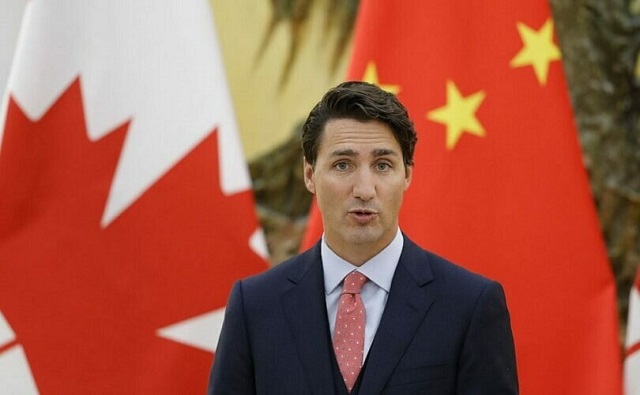
From LifeSiteNews
‘Until foreign interference is viewed as an existential threat to Canadian democracy and governments forcefully and actively respond, these threats will persist,’ reads the 2023 memo given to Prime Minister Justin Trudeau’s office.
Details from a “top secret” memo have shown that Prime Minister Justin Trudeau’s office was given explicit warnings by Canadian intelligence that agents of the Communist Chinese Party (CCP) meddling in the nation’s elections posed an “existential threat to Canadian democracy.”
The disclosure that Trudeau’s office was warned of CCP meddling in Canada’s elections process came during testimony last week at the Foreign Interference Commission.
Counsel for Conservative Party of Canada (CPC) MP Michael Chong observed that a “top secret” memo titled, Briefing To The Prime Minister’s Office On Foreign Interference Threats To Canada’s Democratic Institutions, dated February 21, 2023, was “truly” a “remarkable document” in what it revealed.
The six-page memo went into full detail as to the extent of CCP subterfuge which targeted Canada’s Conservative Party in both the 2019 and 2021 federal elections.
“State actors are able to conduct foreign interference successfully in Canada because there are few legal or political consequences,” reads the memo.
“Until foreign interference is viewed as an existential threat to Canadian democracy and governments forcefully and actively respond, these threats will persist.”
Trudeau has been coy and has never explicitly stated whether he was ever told by members of Canada’s intelligence agency, the Canadian Security Intelligence Service (CSIS), that the CCP agents’ actions were in breach of the nation’s Elections Act.
The Foreign Interference Commission was convened to “examine and assess the interference by China, Russia, and other foreign states or non-state actors, including any potential impacts, to confirm the integrity of, and any impacts on, the 43rd and 44th general elections (2019 and 2021 elections) at the national and electoral district levels.”
The Commission is being headed by Justice Marie-Josée Hogue, who had earlier said that she and her lawyers will remain “impartial” and will not be influenced by politics and began on January 29.
In January, Hogue said that she would “uncover the truth whatever it may be.”
Thus far, the commission has resulted in some interesting findings which are now public.
Yesterday, LifeSiteNews reported how Chong testified before the inquiry that agents of the CCP could install a premier or prime minister of their choosing by infiltrating supposedly closed party leadership races.
Last week, LifeSiteNews reported that this same memo showed that CCP agents did help to elect “pro-China” candidates after disclosing the existence of a large cash payments scheme totaling $250,000 made to so-called “pro-China” public office holders.
Trudeau in 2023 denied he was warned by security officials
Trudeau, in May of 2023, said to reporters that he did not know anything about CCP agents targeting conservative MPs.
“The Canadian Security Intelligence Service knew about certain things but didn’t feel it reached a threshold that required them to pass it up out of CSIS,” he said.
“Was it briefed up out of the Canadian Security Intelligence Service? It was not,” he said, adding that “CSIS made the determination it wasn’t something that needed to be raised to a higher level because it wasn’t a significant enough concern.”
The memo suggests that during the 2021 federal election, meddling efforts “were orchestrated or directed by the People’s Republic of China.”
The unlawful conduct included “activities aimed at discouraging Canadians, particularly of Chinese heritage, from supporting the Conservative Party, leader Erin O’Toole and particularly Steveston-Richmond East candidate Kenny Chiu,” notes the memo.
Last week, David Vigneault, who serves as CSIS director, told the inquiry that he supports the “conclusions” that the CCP was working to help elect China-friendly Canadian MPs.
Thus far, the testimony at the Commission has revealed that former Conservative Party MP Kenny Chiu said he felt “betrayed” by the federal government after only now learning he was the target of agents of the CCP.
Also, the public has learned via the inquiry from Chief Electoral Officer Stéphane Perrault that he was secretly warned by security agents of irregularities in the 2019 election.
Recently, it was revealed that Trudeau’s office knew of security warnings against one of his MPs who was helped to get elected by Chinese agents yet kept him in the party regardless.
When it comes to the CCP, many Canadians, especially pro-freedom Chinese Canadians, are concerned with the nation’s influence in what is supposed to be a democratic process.
As for Trudeau, he has in the past praised China for its “basic dictatorship” and has labeled the authoritarian nation as his favorite country other than his own.
-

 conflict2 days ago
conflict2 days agoCol. Douglas Macgregor torches Trump over support for bill funding wars in Ukraine and Israel
-

 Censorship Industrial Complex1 day ago
Censorship Industrial Complex1 day agoNow We Are Supposed to Cheer Government Surveillance?
-

 Alberta1 day ago
Alberta1 day agoRed Deer Doctor critical of Alberta’s COVID response to submit report to Danielle Smith this May
-
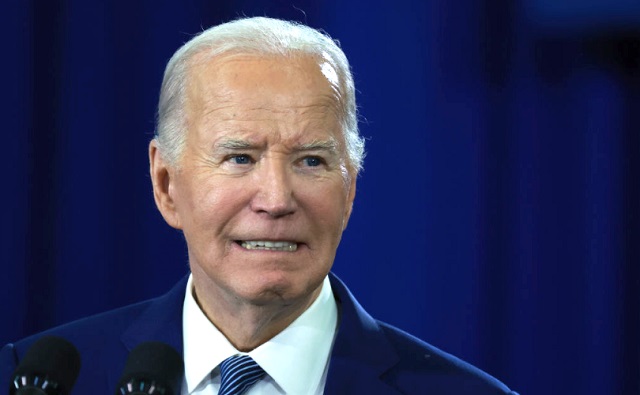
 International2 days ago
International2 days agoBiden admin expands Title IX to include ‘gender identity,’ sparking conservative backlash
-

 Business12 hours ago
Business12 hours agoTaxpayers criticize Trudeau and Ford for Honda deal
-

 Alberta2 days ago
Alberta2 days agoAlberta’s baby name superstar steals the show again
-

 Uncategorized2 days ago
Uncategorized2 days agoThe end of Canada: The shift from democracy to totalitarian behavior in the ‘pandemic era’
-

 Business16 hours ago
Business16 hours agoDon’t be fooled by high-speed rail

